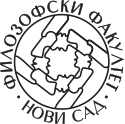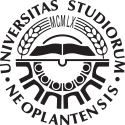- Bori Imre, szerk. Ezredéve itt. Délvidéki olvasókönyv. Újvidék, Forum Könyvkiadó, 2004. http://www.forumliber.rs/pdf/books/Bori%20Imre%20EZREDEVE%20ITT.pdf (Original title)
- Kalapis Zoltán: Életrajzi kalauz. Ezer magyar biográfia a délszláv országokból. I–III. Újvidék, Forum Könyvkiadó, 2002–2003. http://www.forumliber.rs/pdf/books/Kalapis%20Zoltan%20ELETRAJZI%20KALAUZ%20A-GY.pdf; http://dda.vmmi.org/docs/kalapis-eletrajzi2.pdf; http://dda.vmmi.org/docs/kalapis-eletrajzi3.pdf (Original title)
- Káich Katalin: A bogyófák árnyékában. Tanulmányok Zombor művelődéstörténetéből. Újvidék, Vajdasági Magyar Közművelődési Társaság, 2006. (Original title)
- Silling István: Barangolások Nyugat-Bácskában. Művelődéstörténeti földrajz szülőföldemről. Újvidék, Forum, 2012. (Original title)
- A torony alatt. Szabadkai szerzők írásai Szabadkáról. Az Országépítő c. folyóirat 2001/4. számának melléklete. http://www.orszagepito.hu/szamok/teljes/2001-4m.pdf (Original title)
- Ózer Ágnes: Élet és történelem. Esszék Újvidékről. Újvidék, Forum Könyvkiadó, 2002. http://www.forumliber.rs/pdf/books/Ozer%20Agnes%20-%20Elet%20es%20tortenelem.pdf (Original title)
- Németh Ferenc: Úri világ Torontálban. Művelődéstörténeti írások. Újvidék, Forum, 2003. http://www.forumliber.rs/pdf/books/Nemeth%20Ferenc%20-%20Uri%20vilag%20Torontalban.pdf (Original title)
- Ispánovics Csapó Julianna: A bácskai magyar irodalmi kultúra előtörténete a régió magyar könyvkiadása szempontjából. Újvidék, BTK, 2011. (Original title)
- Pejin Attila: A helytörténetírás és -kutatás kézikönyve. Zenta, VMMI, 2008. (Original title)
- Bácsország. Vajdasági honismereti szemle. 1995– . http://www.bacsorszag.rs/about.php (Original title)
|

